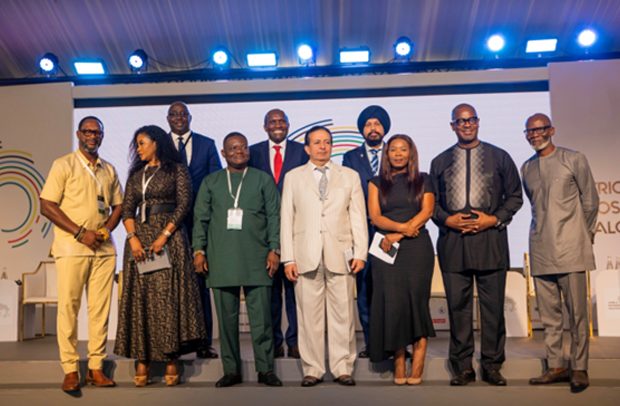
As Ghana intensifies efforts to tackle youth unemployment and improve food system resilience, a bold initiative is emerging from the heart of Northern Ghana, combining inclusive agribusiness, value addition, and systems transformation.
The Boost-to-Bloom Project, led by Agrihouse Foundation with strategic funding from AGRA and Mastercard Foundation under the Youth Entrepreneurship for the Future of Food and Agriculture (YEFFA) programme, is targeting 20,000 youth to drive the next wave of growth in Ghana’s horticulture sector.
This initiative arrives at a critical time, as Ghana works to reduce food inflation, stabilize vegetable markets, and expand agro-processing capacity—particularly in pepper, tomatoes, and onions.
Northern Ghana, with its vast agricultural potential, stands poised for transformation. Boost-To-Bloom project provides the structure, training, and market connectivity needed to unlock it.
Youth unemployment remains highest in Ghana’s northern regions, where agriculture is often subsistence-based and disconnected from value chains.
Boost-To-Bloom project offers a fresh, structured approach to agribusiness—one that is driven by youth and oriented toward markets, jobs, and processing opportunities.
From 2025 to 2028, the project will empower 20,000 young people, particularly women and persons with disabilities across the Upper East, Upper West, Savannah, North East, and Northern Regions.
Through an intensive program of bootcamps, mentorship, and business incubation, participants will be trained to cultivate and process horticultural crops, establish input supply services, and build profitable agribusiness ventures.
“This initiative is not only about farming; it’s about building ecosystems of entrepreneurs who are ready to feed and lead,” said Alberta Nana Akyaa Akosa, Executive Director of Agrihouse Foundation.
A central pillar of Boost-To-Bloom Project is its emphasis on value addition and market access. Beneficiaries will be trained in food processing and packaging techniques, enabling them to produce shelf-ready products like tomato paste, dried onions, and pepper powder.
This approach directly aligns with the Government of Ghana’s Feed Ghana strategy, which prioritizes increasing agricultural productivity, enhancing agro-processing, and creating decent jobs for youth through competitive value chains.
By strengthening the local production and value addition of vegetables like tomatoes, pepper, and onions, the initiative contributes to achieving national food self-sufficiency and export readiness—core pillars of the Feed Ghana agenda.
AGRA’s support ensures that the program goes beyond individual training to foster system-level impact.
This includes establishing agribusiness networks across all five regions, linking youth to local and export buyers through structured aggregation hubs, and promoting policy engagement and advocacy to improve the operating environment for youth-led agribusinesses.
“By embedding market linkages and entrepreneurial skills from the start, we are giving our youth more than skills—we are giving them leverage,” said Dr. Betty Annan, AGRA’s Ghana Country Director.
Historically excluded from land, credit, and leadership, women and persons with disabilities (PWDs) are often overlooked in agribusiness programming. Boost-To-Bloom project puts them at the center.
Participants will receive not only agronomic and processing training, but also business management, cooperative governance, leadership, and technology use.
Women will also benefit from targeted support to navigate structural barriers and grow collective enterprises.
In a region where women farmers struggle with scale and market entry, this investment is expected to generate thousands of dignified jobs while reshaping perceptions of who leads in agriculture.
Boost-To-Bloom project builds on the success of Agrihouse’s Foundation previous flagship project, One Household, One Garden Initiative (1H1G)—which empowered over 5,000 households to achieve food self-sufficiency and community resilience during COVID-19.
Ibrahim Ayishetu, a 26-year-old beneficiary from Gushiegu, joined the initiative to utilize the parcel of land in front of her house.
Being unemployed, she desired to grow vegetables to feed herself and her elderly mother Initially, while attempting to grow seedlings from seeds, she encountered failure on her first attempt.
However, the Agricultural Extension Agent (AEA) assigned to her provided technical advice and a new set of seeds as she was over-watering them. She was successful with the new set of seeds given (lettuce and cabbage)
After this success, two of her neighbors sought her assistance to nurse their seeds. Identifying an opportunity, she began nursing lettuce and cabbage seeds for sale. After six weeks of selling seeds, she earned a profit of Ghc320.
This successful venture has motivated her to take a decision to grow seeds for sale on a large scale when the main season commences.
Also, Tahidu Tayiba, a mother of two from the Gushegu District, highly commends the one Household one Garden Project. She expressed how over the past six weeks, she has been able to walk into her garden and pick fresh vegetables for her daily meals.
This experience has been transformative, as she no longer needs to spend money on purchasing vegetables from external sources. Instead, she has been able to allocate these funds towards buying fish and meat, thereby enhancing the nutritional value of her family’s meals.
While 1household 1garden initiative focused on backyard food security, Boost-To-Bloom project marks a scaling up from garden to enterprise, from household nutrition to local economic transformation.
The new program also draws on Agrihouse’s AG-STUD Bootcamp, which has guided hundreds of students into agribusiness careers and networks. Boost-To-Bloom project takes these lessons and applies them at scale, building a pipeline of youth leaders, processors, input dealers, and exporters.
With structured support from AGRA, the project expects to create at least 5,000 jobs in its first phase, contributing directly to market stability, post-harvest loss reduction, and export readiness.
Crucially, it also offers a scalable model for governments, donor agencies, and private investors seeking to support rural transformation through youth. The call now is for corporate organizations, agribusiness investors, and development partners to rally behind the effort, extend support, and explore replication.
“This is not a one-off initiative. Boost-To-Bloom Project is a blueprint for youth-led agricultural transformation that can work across the continent,” said Akosa.
AGRA’s support for Boost-To-Bloom project aligns with its broader mandate to catalyze inclusive agricultural transformation by supporting enterprising models that improve resilience, income, and food system stability.
Under its 3.0 strategy, AGRA is committed to enabling youth entrepreneurship, resilient food markets, scalable partnerships, and policy influence and advocacy at country level.
By embedding the Boost-To-Bloom project into national narratives and regional priorities, AGRA is not just funding an initiative—it is enabling a catalytic moment for horticultural growth in Northern Ghana.
At a time when food security, employment, and rural resilience are top of the national agenda, Boost-To-Bloom project provides a credible, community-driven solution that unites the strengths of youth, the private sector, and smart policy design. It is not simply a development project it is an economic strategy in action.
The post Boost-to-Bloom project: Unlocking youth-led horticulture for growth in northern Ghana appeared first on The Business & Financial Times.
Read Full Story





















Facebook
Twitter
Pinterest
Instagram
Google+
YouTube
LinkedIn
RSS